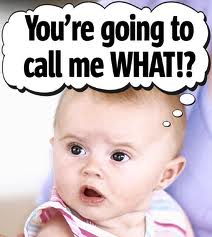Did you know in Denmark, all Danish parents can only name their children from a pre-approved government list of 3000 names for boys and 4000 names for girls.

At its heart, the Law on Personal Names is designed to protect Denmark’s innocents – the children who are undeservedly, some would say cruelly, burdened by preposterous or silly names. It is the state’s view that children should not suffer ridicule and abuse because of their parents’ lapses in judgment or their misguided attempts to be hip. Denmark, like much of Scandinavia, prizes sameness, not uniqueness, just as it values usefulness, not frivolousness.
While other Scandinavian countries, and some like France, have similar laws, Denmark’s is the strictest. So strict that the Danish Ministry of Justice is proposing to relax the law to reflect today’s Denmark, a place where common-law marriage is accepted, immigration is growing and divorce is routine.
“The government, from a historical point of view, feels a responsibility towards its weak citizens,” said Rasmus Larsen, chief adviser at the Ministry for Ecclesiastical Affairs, discussing the law. “It doesn’t want to see people put in a situation where they can’t defend themselves. We do the same in traffic; we have people wear seat belts.”
People expecting children can choose a pre-approved name from a government list of 7,000 mostly West European and English names – 3,000 for boys, 4,000 for girls. A few ethnic names, like Ali and Hassan, have recently been added.
But those wishing to deviate from the official list must seek permission at their local parish church, where all newborns’ names are registered. A request for an unapproved name triggers a review at Copenhagen University’s Names Investigation Department and at the Ministry of Ecclesiastical Affairs, which has the ultimate authority. The law applies only if one of the parents is Danish.
Many parents do not realize how difficult it can be to get a name approved by the government. About 1,100 names are reviewed every year, and 15 percent to 20 percent are rejected, mostly for odd spellings.
by Lorelle Heath

